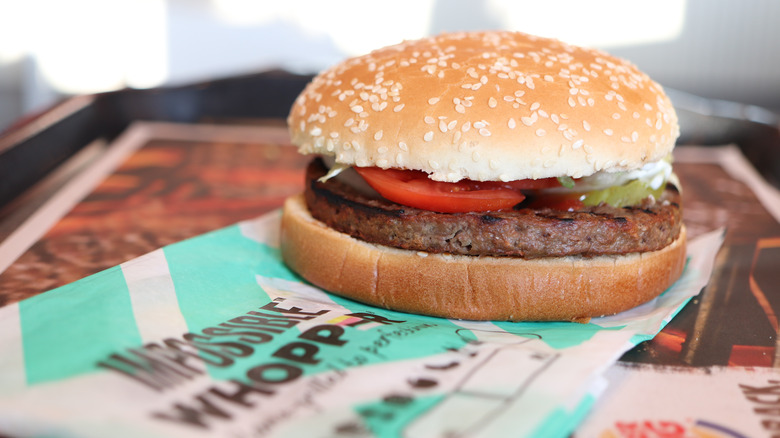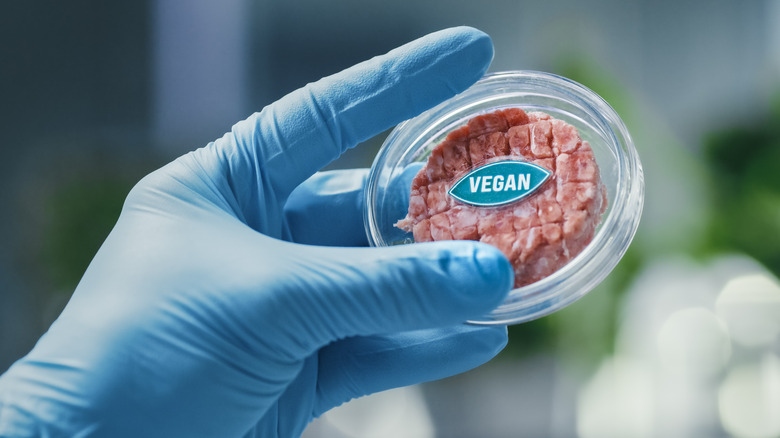New Study Shows Protein From Meat-Alternatives May Be Less Effective
Many cultures around the world have been practicing reduced meat diets for years, but there has seemingly been an increased interest over the last few. In fact, as the idea gains popularity, the Food Revolution Network has predicted that the plant-based food products industry will be worth $162 billion by the year 2030. They also report that nearly 50% of all major food companies now have specialized plant-based teams, dedicated to keeping up with product demands.
Brands like Impossible Foods and Beyond Meat can now be found at chain restaurants like Qdoba, Red Robin, Burger King, and Starbucks (via Muscle and Fitness). As plant-based meat alternatives become more widely available, people who eat plant-based diets — or even those who are just curious and want to give them a taste — may want to know how much protein is actually being consumed.
Despite the growing demand for these meat alternatives, a new study shows that protein from these products may not be as effective as real meat in terms of protein absorption.
The protein is similar, but not exact
A study conducted at The Ohio State University examined the effectiveness of plant-based meat alternatives in terms of absorbing dietary protein.
The team of scientists placed human gut cells in two separate chambers, reports NewScientist. A plant-based meat alternative and a cooked chicken breast were each treated with enzymes from the stomach to "digest" them before being added to the gut cells. When the scientists revisited the chambers around four hours later, they found that the plant-based meat alternative had absorbed about 2% less protein than the chicken breast.
Although 2% may seem like a minimal difference, the researchers found that the protein fragments of the chicken breast were smaller and more soluble, making them more easily absorbed than the plant-based protein. NewScientist reports that researchers concluded that although meat alternatives may provide slightly less protein intake, they are still a great source of protein for those who do not eat meat.

